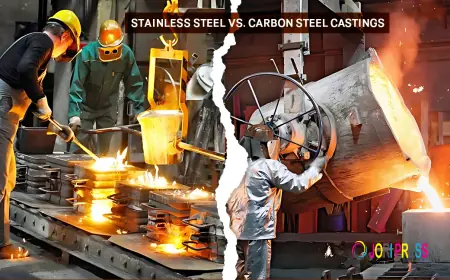Why Use Home Appliance Testing Instruments as per IS 302?
This is where home appliance testing instruments as per IS 302 takes the center stage. Not only do such equipment ensure manufacturers meet the regulatory requirement but also that consumers get a product that is safe, dependable, and long-lasting.

In this fast-paced new era, domestic appliances have turned into a way of life. From washing machines and refrigerators to mixers, irons, and air conditioners, we rely upon these appliances for saving time and a more convenient life. Due to the increasing need for electric appliances, it has never been more important to keep them safe, sturdy, and efficient. This is where home appliance testing instruments as per IS 302 takes the center stage. Not only do such equipment ensure manufacturers meet the regulatory requirement but also that consumers get a product that is safe, dependable, and long-lasting.
Understanding IS 302 and Its Importance
IS 302 is a crucial Indian Standard that specifies the safety requirements for household and similar electrical appliances. Developed by the Bureau of Indian Standards (BIS), this standard ensures that appliances are manufactured in compliance with specific guidelines to minimize risks such as electric shocks, fire hazards, or mechanical failures. In simpler terms, IS 302 works as a safety benchmark for manufacturers and a shield of trust for consumers.
For manufacturers, aligning with IS 302 is not optional—it is mandatory. It guarantees that products can enter the market legally and assures consumers that what they are buying has been tested against stringent safety protocols. Without following these standards, manufacturers risk recalls, legal issues, and brand reputation damage.
Role of Testing Instruments in Compliance
Standards alone are not enough; they need proper testing tools to enforce them. This is where advanced instruments play their role. Home appliance testing instruments as per IS 302 are designed to simulate real-life operating conditions and stress levels. They check whether an appliance can handle voltage fluctuations, prolonged usage, and other critical scenarios that may arise during its lifecycle.
For instance, a refrigerator undergoes thermal testing to ensure it performs efficiently even during power surges. Similarly, irons are tested for insulation resistance to prevent electric shocks. Without specialized testing instruments, it would be nearly impossible to verify whether an appliance complies with IS 302 safety standards.
Key Benefits of Using Testing Instruments
-
Ensures Consumer Safety
The foremost reason for adopting IS 302-based testing instruments is consumer protection. Appliances are used daily by families, including children and elderly individuals, making safety non-negotiable. Proper testing ensures appliances are free from hazards such as electrical leakage, overheating, or fire risks.
-
Compliance with Legal Standards
For manufacturers, compliance with IS 302 is not just about maintaining quality—it’s a legal requirement. Using certified testing instruments makes it easier to generate accurate reports and prove adherence to regulatory norms during audits or inspections.
-
Improved Product Reliability
Testing instruments simulate real-world usage and extreme conditions, which helps in identifying weak points in design or materials. By correcting these flaws early in the production process, manufacturers can ensure that the final product performs reliably over its expected life span.
-
Boosts Brand Reputation
In a highly competitive market, brand trust plays a significant role in customer decisions. Appliances that pass through standardized testing reflect a manufacturer’s commitment to quality and safety. Over time, this builds credibility and customer loyalty.
-
Reduced Costs in the Long Run
While investing in sophisticated testing equipment may appear costly, it saves money in the long term. By detecting defects during the testing phase, manufacturers can avoid expensive product recalls, warranty claims, and damage to their brand reputation.
Common Types of Tests Conducted Under IS 302
-
Electrical Safety Tests – These include insulation resistance, leakage current, and dielectric strength tests to ensure users are protected from electrical hazards.
-
Mechanical Safety Tests – Appliances are subjected to drop tests, vibration tests, and stability checks to ensure they can withstand regular handling.
-
Thermal Performance Tests – Verifying whether appliances maintain safe surface temperatures and operate efficiently without overheating.
-
Durability Tests – Assessing long-term performance under extended usage conditions.
-
Environmental Tests – Checking the appliance’s resistance to humidity, dust, or temperature variations.
Each of these tests requires precise instruments calibrated to the specifications of IS 302, making their role indispensable in the production and certification process.
Importance of Testing for the Indian Market
In India, the electrical appliance industry is rapidly growing, fueled by rising disposable incomes, urbanization, and technological advancements. With millions of units being sold each year, even a small defect can pose a significant risk to public safety. Strict testing as per IS 302 ensures that only safe and efficient products reach the market, boosting consumer confidence.
Moreover, international markets often require compliance with both local and global safety standards. By adopting IS 302 testing early, Indian manufacturers can position themselves better for exports, as many global standards align with IS 302 requirements.
Conclusion
The significance of safety and reliability in home appliances cannot be overstated. Manufacturers must not only design innovative and efficient products but also ensure they are safe for everyday use. That is why home appliance testing IS 302 plays a central role in the industry. By using standardized instruments, manufacturers can guarantee compliance, enhance product reliability, and build trust with their customers.
In the end, the use of proper testing instruments is not just about following a regulation—it’s about delivering peace of mind to every household that invests in a home appliance.
What's Your Reaction?
 Like
0
Like
0
 Dislike
0
Dislike
0
 Love
0
Love
0
 Funny
0
Funny
0
 Angry
0
Angry
0
 Sad
0
Sad
0
 Wow
0
Wow
0














































